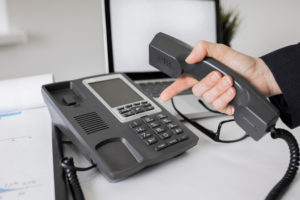Securing Your VoIP Systems: Best Practices for Enhanced Protection and Compliance

As VoIP technology continues to be an essential component of modern business communication, ensuring the security and compliance of these systems is now more critical than ever. As cyber threats become increasingly sophisticated, it’s vital for organizations to adopt robust strategies to protect sensitive data and maintain a secure communication environment. Furthermore, meeting regulatory compliance requirements is essential to avoid potential legal complications or financial penalties.
In this in-depth guide, we will explore best practices for securing your organization’s VoIP systems, from implementing encryption to conducting risk assessments. Developing an effective VoIP security strategy can not only safeguard your valuable information and communication channels, but it can also promote customer trust, ensure regulatory compliance, and ultimately, protect your reputation in the highly competitive marketplace.
We will delve into the following aspects of VoIP security:
1. Encryption and Authentication Mechanisms: Understand the importance of implementing end-to-end encryption and robust authentication measures to secure your VoIP communication channels and prevent unauthorized access.
2. Firewalls and Intrusion Detection Systems: Learn about the crucial role of firewalls and intrusion detection systems in protecting VoIP infrastructure against potential cyber threats.
3. Security Policies and Employee Trainings: Discover the significance of developing comprehensive VoIP security policies and providing regular employee training to ensure system-wide adherence and protection.
4. Regulatory Compliance: Uncover the essential components of regulatory compliance for VoIP systems, ensuring your organization meets industry-specific and government-mandated security requirements.
By expanding your knowledge on these fundamental best practices, you can create a thriving and secure VoIP environment for your organization, allowing your teams to effectively collaborate and communicate without compromising network security and compliance. Continue reading to dive deeper into VoIP security best practices and learn how they can be employed to protect your organization while simultaneously improving your communication infrastructure’s efficiency and reliability.
1. Encryption and Authentication Mechanisms
To ensure the security of your VoIP communication channels, end-to-end encryption and strong authentication measures are vital. These approaches help protect the confidentiality and integrity of data transmitted over VoIP services while preventing unauthorized access.
a. End-to-End Encryption: Encryption shields sensitive information in transit by making it unreadable to anyone without the appropriate decryption key. Implementing industry-standard encryption protocols such as Secure Real-Time Transport Protocol (SRTP) and Secure Socket Layer (SSL) is essential to safeguard your VoIP traffic.
b. Strong Authentication: Robust authentication methods, such as multi-factor authentication (MFA), ensure that only authorized users can access your VoIP services. Implement MFA by combining various forms of user verification, such as passwords, biometrics, and one-time codes.
2. Firewalls and Intrusion Detection Systems
The protection of your VoIP infrastructure against potential cyber threats is essential, which highlights the importance of firewalls and intrusion detection systems.
a. Firewalls: Firewalls act as gatekeepers, monitoring incoming and outgoing traffic to block unauthorized access or malicious activities. Utilizing a dedicated VoIP firewall helps safeguard your system from hacker attacks, Denial of Service (DoS) assaults, and other security threats.
b. Intrusion Detection Systems (IDS): IDS analyze network traffic and detect suspicious activities, issuing alerts or taking action when needed. Deploying an IDS that specializes in VoIP security is highly recommended to prevent costly data breaches and ensure the overall safety of your communication systems.
3. Security Policies and Employee Trainings
Developing comprehensive VoIP security policies and providing regular employee training are crucial to maintain a secure VoIP environment.
a. Security Policies: Your VoIP security policies should detail specific protocols, guidelines, and procedures for users, administrators, and service providers to follow. These policies must clearly outline data protection measures, access control, and incident response procedures.
b. Employee Training: Educating your employees about VoIP security best practices is essential to prevent human error and reinforce security awareness. Regular training sessions should cover topics such as password management, phishing awareness, and how to identify suspicious activities.
4. Regulatory Compliance
Meeting regulatory compliance requirements is critical for organizations using VoIP services. These requirements may differ depending on your industry, but common elements include:
a. Data Protection: Complying with data protection regulations, such as the General Data Protection Regulation (GDPR) and the California Consumer Privacy Act (CCPA), ensures your VoIP system adheres to strict privacy standards for handling customer and employee data.
b. HIPAA Compliance: For organizations in the healthcare sector, compliance with the Health Insurance Portability and Accountability Act (HIPAA) is essential. VoIP providers offering services to healthcare clients must offer a Business Associate Agreement (BAA) and ensure their systems maintain patient data confidentiality and security.
c. Financial Industry Compliance: Financial institutions must meet specific security standards such as the Payment Card Industry Data Security Standard (PCI DSS) and the Sarbanes-Oxley Act (SOX). These regulations mandate comprehensive security measures for data storage, processing, and transmission, including VoIP systems.
Conclusion
Securing your VoIP systems is critical to enhance protection, ensure regulatory compliance, and maintain overall trust in your organization’s communication infrastructure. By implementing encryption and authentication measures, deploying firewalls and intrusion detection systems, establishing security policies, providing employee training, and adhering to regulatory requirements, you create a strong foundation for safeguarding your VoIP services.
For expert guidance and personalized solutions to secure your VoIP system, contact our team at American Telecom Solutions today. We offer a wide array of VoIP telecommunications products and professional Voice over Internet Phone services to help government and commercial customers implement best practices and improve the security of their communication systems.
Leave a Reply
